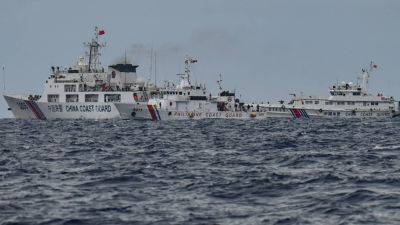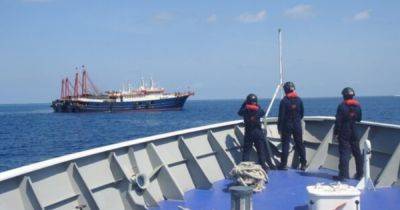US offer to escort Philippines’ ships in South China Sea risks clashes with Beijing
Admiral Samuel Paparo, commander of the US Indo-Pacific Command, told reporters on Tuesday that the “escort of one vessel to the other is an entirely reasonable option within our Mutual Defence Treaty (MDT)”, depending on consultations between both countries.
On Wednesday, the Pentagon followed up on Paparo’s comment by saying the Philippines would “remain the lead for its own operations in the South China Sea” should it take up the US offer and Washington would “continue to provide significant advisory support in addition to our efforts to help modernise the Philippine military”.
Manila has been embroiled in a series of clashes with China, with the latest incident occurring on Monday, when Chinese and Philippine coastguard vessels collided near Sabina Shoal, resulting in damage to two of Manila’s ships as both sides traded blame for the incident.
Following the latest clash, the US State Department issued a statement reminding Beijing “that Article IV of the 1951 US-Philippines Mutual Defence Treaty extends to armed attacks on Philippine armed forces, public vessels, or aircraft – including those of its coastguard – anywhere in the South China Sea”.
Philippine military chief Romeo Brawner responded to the escort offer by saying the Philippines preferred to unilaterally run its missions and would exhaust all means to do so. But he did not close the door on alternatives, saying the Philippines would consider joint operations with not just the US but also with “other like-minded nations”.
Geopolitical analyst Matteo Piasentini said the Philippines might have to ask for American support if maintaining its outposts like the BRP Sierra Madre were to become impossible. Such an outcome would mean accepting the risk of US and Chinese







